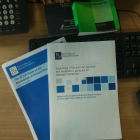For reasons beyond my control I have been involved in a lot of significant events over the past year. Should I analyse and present them all? How should I present and audit them?

While the RCGP recommends a minimum of two significant event audits (SEAs) in each annual appraisal, the GMC makes no mention of numbers. Thus the submission in this scenario depends entirely on what the doctor thinks is the use of the appraisal meeting.
If the GP feels the process is an irritating tick-box requirement, they should pick two cases from which they can easily demonstrate reflective learning and application. Alternatively, if the GP recognises the process as learning from ‘mistakes’ and ensuring they do not recur, they should submit all the cases and ensure there is enough time during the appraisal to get as much feedback and learning out of them as possible.
Appraisal is not an exam with right and wrong answers, and no sanctions will be levied against a GP for bringing such cases to the meeting.
None of us should be so arrogant as to think that we never make errors of judgment and we deserve to be seen as both legally and morally negligent if we choose not to learn from our errors. Sadly, the problem more often lies in finding the time to record such examples in a reflective format for presentation.
Dr Jim Sherifi is a GP in Sudbury, Suffolk
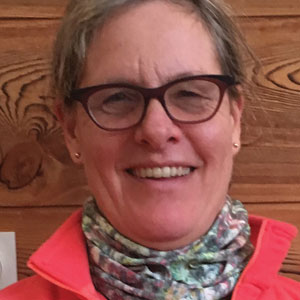
SEAs are defined as unexpected events that harmed or might have harmed a patient. The GMC recognises that you or your team may have had no such incidents in the year.
If you have had a lot, you don’t have to discuss all of them during your appraisal. Consider context – a portfolio GP in a higher-risk environment, such as a prison, may have more SEAs than colleagues in different settings.
At appraisal you can present a significant case analysis, but this refers to an individual case review used to reflect on the learning from an event that might not have had a serious outcome.
To help you choose areas for discussion, you might want to look for common themes, for example if several events involve delayed actions on results or relate to the same clinical area.
You could then pick a more serious SEA, or one from which you have taken the most learning. What is important is your reflection on what happened and the resulting changes in your practice.
Your reflections might give you ideas for an audit of an aspect of your practice, or identify a CPD need for your PDP.
Sometimes, having a string of unexpected events (such as significant events) in a short period (such as a year) highlights new pressures in your working life. These could be connected with your health and your work-life balance, but they could also point to external issues, such as working in a poorly organised or understaffed practice. Tackling organisational issues can be difficult and you might need advice from a colleague, your appraiser, the LMC or your medical defence organisation.
Dr Clare Etherington is a GP and appraiser in London, and head of primary care education & training for Health Education North West London
I have a serious medical condition that I believe poses no risk to patients. I do not want others to know about it. Do I have to declare it to my appraiser?
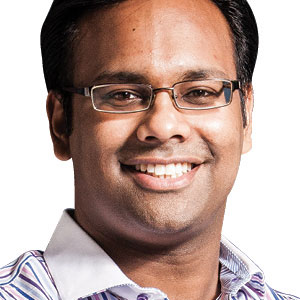
The important point here is that you must not rely on your own assessment of the risk to patients. So even if you think your medical condition poses no risk, you must consult your own GP or occupational therapist so they can assess your condition and reach a definitive conclusion about whether it is safe for you to continue working.
The GMC has clear advice on the topic: ‘If you know or suspect that you have a serious condition that you could pass on to patients, or if your judgment or performance could be affected by a condition or its treatment, you must consult a suitably qualified colleague. You must follow their advice about any changes to your practice they consider necessary. You must not rely on your own assessment of the risk to patients.
• You should be immunised against common serious communicable diseases (unless otherwise contraindicated).
• You should be registered with a GP outside your family’.
The GMC advises against trying to assess yourself – the rationale seems to be that subconscious bias may prevent you from making an impartial, objective judgment about your own abilities.
Once you have seen your own GP or occupational physician, the question arises about whether you are obliged to tell your appraiser.
I advise that you inform your appraiser about your condition, and ensure they know you are being treated and cared for by your GP or occupational health physician, who has no concerns about your capacity to practise. Your appraiser can advise you about whether you require a formal occupational assessment to assess the impact of your condition on your work.
According to the RCGP, you will be required to submit as part of your revalidation portfolio ‘a statement that you have a health condition which is being treated adequately and that your doctor has no concerns’.4
Dr Hamed Khan is a GP in the emergency department of St George’s Hospital, London, and a clinical lecturer
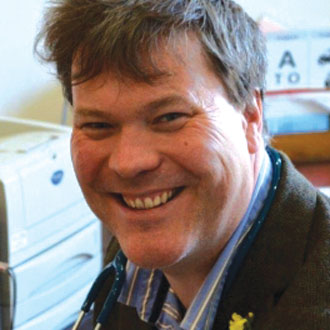
The troublesome phrase in the dilemma is ‘I believe’. No matter how inconvenient it may be, we know that we are poor at assessing our own health and both the GMC and RCGP explicitly state that we should not do this. Here we are dealing with a serious medical condition and clearly breaking this guidance.
You must get an independent doctor’s opinion on your health and ability to do the job safely. The ‘risk’ is the independent doctor may disagree with you and advise curtailing your work activities, but doctors are no different from other professions in this respect.
So disclose your health condition at appraisal. Having a full, open and hopefully supportive discussion is to be recommended. When submitting your portfolio, you are required to declare that you accept the professional obligations placed upon you in Good Medical Practice in terms of your personal health.
So you will have to seek an independent review of your condition. Moreover, the RCGP describes denying or concealing ill health to be the action of an ‘unacceptable GP’.
It is unlikely that your appraiser will be a specialty doctor in the area, an occupational health physician, or your registered GP. That is good, as the appraisal should not be the venue for a formal occupational assessment. It is possible that your appraiser may misinterpret their role here and if you find they are making occupational recommendations that seem inappropriate, politely point this out and suggest that you both defer to your own physician on this matter.
Gather supporting paperwork. These could be assessments, reports or clinic letters. Also bring a record of any discussions you have with your medical indemnity body or other bodies and your own practice.
Dr Matt Burkes is a GP from Chichester and the co-editor of The Good GP Training Guide
As a locum working in many different practices it is hard to find GPs who know me well enough to give colleague feedback. What can I do to satisfy the GMC’s requirements?
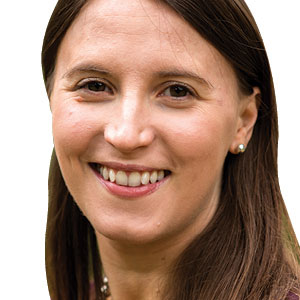
The GMC has guidance on this as GP locums aren’t the only doctors who might think they will find it hard to meet this requirement. You can probably get comments, even if brief, from other GPs you have worked with.
The GMC also emphasises that it doesn’t have to be only GP colleagues or doctor colleagues that feed back. You can also use other staff in the practice including the practice manager, reception and administration team, as well as nurses and healthcare assistants. These staff members will be able to provide useful feedback even after working with you for a short time. They will gain valuable feedback about your interpersonal skills from patients and be aware of your time management and organisational skills.
Remember also that you can approach other members of the wider health team, including community nurses and hospital colleagues to whom you refer. You should also remember, both for yourself and those that you ask, that they do not have to be able to comment on all aspects of your practice. For example, if you attend a GP sessional group or other small group for learning, you could ask these colleagues to comment on your education, efforts to keep up to date and ability to reflect. There are no wrong selections. This feedback is only intended to provide appropriate and useful information for discussion with your appraiser to help you reflect on your practice and identify opportunities for professional development and improvement.
Dr Laura Edwards is medical director of Wessex LMC and a locum GP. She is also one of the co-authors of the Wessex LMCs guide ‘Revalidation for GP Locums – A Practical Guide’

The RCGP recommends that you get colleague feedback collected and discussed with your appraiser at least once in every revalidation cycle. Plan ahead and start asking at least 12 months before your revalidation date.
It helps if the colleague is familiar with you when they answer the questions on the feedback form. So when working in a practice, try to speak to some of the GPs to ask if they might complete a feedback request when it comes, rather than leaving them to receive an impersonal computer-generated email. Provide a one-page CV with a photograph describing yourself and your career.
If you cannot meet the GP, send a personal note via the practice manager. And make the request as soon as you have finished your sessions at a practice while you are fresh in a GP’s mind.
Consider providing whoever you’re asking feedback from with a copy of the Patient Satisfaction Survey (PSQ), together with any free text comments, as these things will say a lot about you and will help them when your request comes to complete colleague feedback.
Request more feedback than you think you’ll need as some GPs may not reply. This is a big problem for locums, made worse by ‘feedback fatigue’ as busy GPs struggle to manage increasing workload.
Dr Rodger Charlton is a professor of primary care education at Queen’s Medical Centre, Nottingham, and a GP in Solihull. He is also an honorary editor of RCGP Publications and an honorary professor at Swansea University
Pulse October survey
Take our July 2025 survey to potentially win £1.000 worth of tokens



